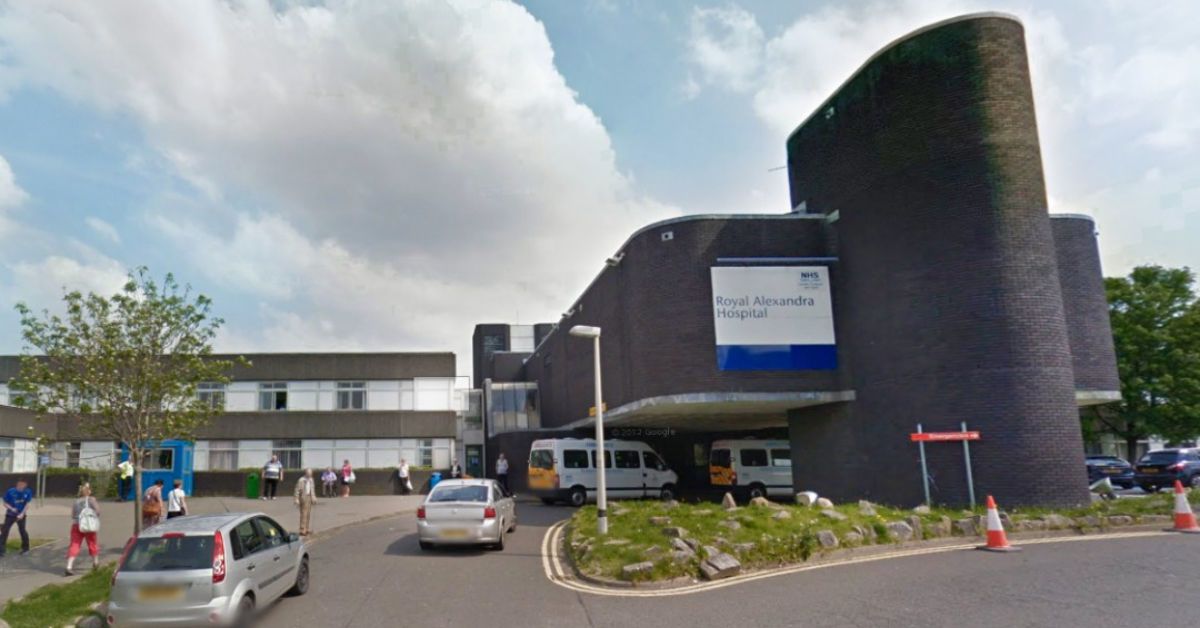The death of an eight-month-old girl cannot be directly linked to a failure to provide adequate rehydration by hospital staff treating her, an investigation has found.
Fearne Adger passed away at the Royal Alexandria Hospital in 2017 after contracting an infection which led to an irregular heartbeat.
A fatal accident inquiry (FAI) found she should have received IV fluid to address her dehydration and been treated on the ward two days earlier when parents David and Lauren took her there for treatment.
However, the probe, chaired by sheriff principal Duncan Murray, added it was “not possible on the balance of probabilities” to say mistakes made by medics contributed to her death.
The family rushed Fearne to the facility in Paisley after being referred over concerns she was not eating or drinking properly on April 27.
She was later admitted on April 28, after which an IV was commenced.
Lauren told the inquiry how she was “singing” to her daughter on the ward when she became “lethargic” and began breathing heavily.
Medical staff whisked her away for emergency treatment including CPR and electrical shocks in a bid to restart her heart, but were unable to save her.
It was later found Fearne had suffered from a “disseminated parechovirus infection which gave rise to myocarditis which in turn gave rise to a fatal cardiac arrhythmia”.
In his ruling, sheriff Murray acknowledged the treatment for her dehydration was “not at the standard which should have been expected”.
However, he added the “tragic outcome” may not have been avoided even if the correct fluid management had been put in place.
“While those shortcomings did not on the balance of probabilities impact on the tragic outcome they are clearly to be regretted,” he told Paisley sheriff court.
“The inquiry has established that the care which Fearne received from the 27 April and the steps taken to address her dehydration were not at the standard which should have been expected.
“However, it is not possible to say, on a balance of probabilities, that the outcome would have been different if an alternative hydration regime had been adopted or had Fearne been admitted to the Royal Alexandra Hospital earlier than she was.”
Sheriff Murray added that “shortcomings” had also been found in handover notes and medical record keeping which may also have contributed to below par levels of care.
He added: “I should again offer my most sincere condolences to Mr and Mrs Adger. The loss of a child is particularly poignant.
“I especially noted the impact which Mr Adger said that Fearne’s death had on him.
“I am glad that Mrs Adger was able to record taking some comfort from the special moment which she had with Fearne as she was settling her just after midnight on 29 April and I have no doubt that the tragic loss will have had a devastating impact on her.”
A spokesperson for NHS Greater Glasgow and Clyde (NHSGGC) said “improvements” had been made to their nursing and clinical care service following a review in the wake of Fearne’s death.
A spokesperson for the health board added: “Our thoughts and deepest sympathies remain with Fearne’s family and loved ones at what remains a very difficult time.
“We acknowledge the findings of the sheriff principal and are sorry for the failings identified in Fearne’s care, which we fully accept.”
Follow STV News on WhatsApp
Scan the QR code on your mobile device for all the latest news from around the country


 Google Maps
Google Maps

























